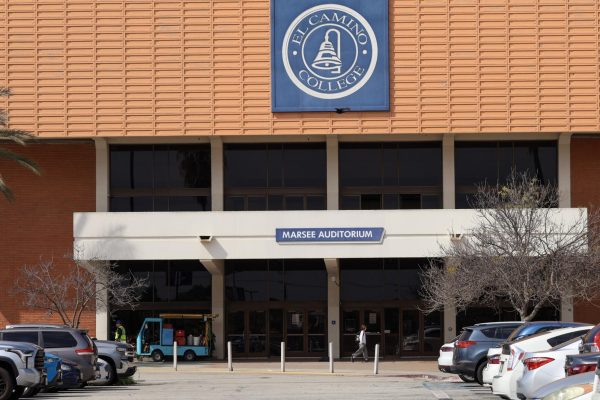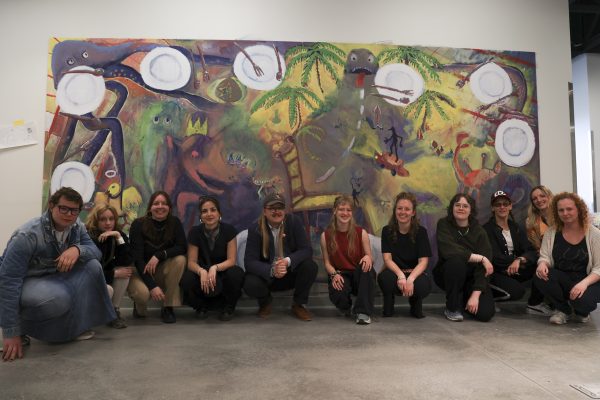Undocumented students have opportunities with El Camino College
Leaving the place they call home for a chance to seek opportunities that were unavailable where they were born, individuals who enter the United States without legal permission risk their lives to find a sense of hope.
According to the California Undocumented Higher Education Coalition, over 75,000 undocumented students are enrolled in California public colleges and universities, nearly 10% of undocumented students pursue higher education and far fewer successfully graduate with a degree.
Some undocumented students can take advantage of educational opportunities by finding support away from home to help them achieve their academic goals at El Camino College (ECC).
ECC has special programs for students in the Deferred Action for Childhood Arrivals (DACA) community who encounter these challenges such as the Opportunity Project and Development, Relief and Education for Alien Minors (DREAM) program.
“There was a real need to create more [services] for immigrant students,” Faculty coordinator for the First-Year Experience Program, Cynthia Mosqueda said.
Faculty and student support services can work together in these immigrant students’ journey of education through programs such as the Opportunity Project at ECC that connects a counselor to math and English courses so students can receive the support they need.
Rocio Diaz, a counselor for the Opportunity Project mentioned that these advisors and advocates are passionate about helping DACA and DREAMer students because of similar experiences they have had or seen relatives go through.
“I wasn’t an undocumented student when I was in college. But you know, it is something that’s close to my heart because I am mindful of some of the challenges from personal experience, but also with family,” Diaz said.
Diaz said that the challenges advocates have witnessed with people close to them allow them to support DACA students in various areas such as counseling and financial support to ensure students’ success.
“It’s really for students who are first-generation, low-income students that need that additional help,” Diaz said.
Diaz said that some of the children who cross the border are even unaware that they are living in the U.S. without legal permission until they want to get higher education and are asked for a Social Security number.
“Navigating higher education can be pretty challenging and when you add the factors of an undocumented student, it can definitely be a lot,” Diaz said.
According to a report by Inside Higher Ed, students without legal residency in the U.S. suffer more anxiety because of their legal status due to finances, fear of deportation and loneliness. These factors attribute to the student’s challenges in their academic performance.
The DREAMers and DACA programs provide students a family away from home through support groups such as the UndocuWarriors Club which serves as a safe space for students and allies at ECC.
The California Community Colleges’ fifth annual Undocumented Student Week was held from Oct. 18 to Oct. 22, where various workshops and informative conferences were held to address challenges that students face in college.
“In 2016 we didn’t have a website and now we have a website with information, support and allies,” Mosqueda said.
Though online, the programs are still able to supply support for those who want to pursue higher education through counseling, financial aid, education plans, transferring, the DREAMer application and free immigration assistance.
All references of support for undocumented students can be found on El Camino’s website where students can get informed and make appointments with counselors.
“We’re being trained to complete these [AB 540, DACA and DREAMer applications] documents so that in case we do have an appointment with a student, we’re able to assist them,” Student Services advisor, Jessica Garcia said.
Garcia said the DREAMers program serves about 1200 to 1300 students per semester at ECC, serving many students with information and resources they need to continue their professional life and create a better future for themselves.
“Education is definitely a right, it shouldn’t be a privilege,” Diaz said.
Editors Note: Headline was changed for more accurate titling on Dec. 1 at 7:01 p.m.


![Physics and astronomy professor Susan Stolovy presents astronomical news and updates to attendees at the first planetarium show of the semester at El Camino College on Friday, March 28. Prior to becoming a professor at ECC, Stolovy completed her doctorate in physics and worked as an astrophysicist for NASA and the California Institute of Technology on spacecraft missions. "[I'm] still very tuned into what's going on in the world of research as well, and I hope to bring a little bit of my experience into the classroom," Stolovy said. (Nikki Yunker | The Union)](https://eccunion.com/wp-content/uploads/2025/03/planetarium-Made-with-Clipchamp-3-frame-at-0m28s-600x338.jpg)


